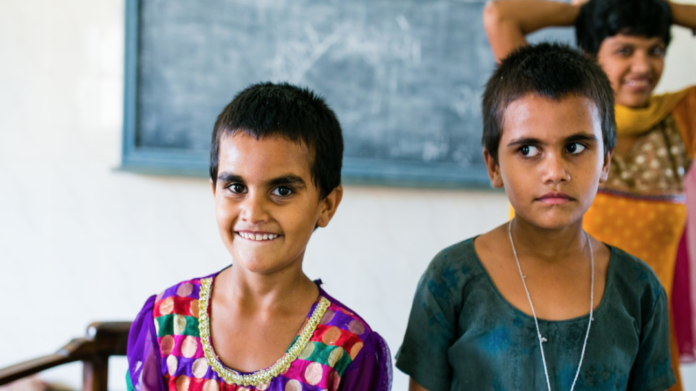 CAREducation Trust: Educating & Empowering Children
CAREducation Trust: Educating & Empowering Children
The Problem
Only 12% of women across India use sanitary pads during their period, leaving almost 90% of women using homemade cloth pads that are reused month after month. Almost 70% of all reproductive health related diseases are caused by poor menstrual hygiene. And an immense 23% of girls drop out of school once they begin menstruation. That is 23% of girls that do not get any education in schools past the age of approximately 12 years old.
Whilst India currently has a 12% Goods and Services tax on sanitary pads and 18% on tampons, they do not tax products such as brooms or sindoor (red powder traditionally worn by married women). We can only assume that the all-male member panel that sits on the Goods and Services Tax Council feel it is much more important to keep your homes clean and be able to clearly identify a married woman, and the country doesn’t need to benefit from that, however, they do from women menstruating each month.
We have previously written about this issue back in 2014: but it is only recently that we are starting to see a shift in focus and perspective on this important issue. It returns to gender equality, something we at CARE strive to achieve and underpins a lot of what we do. To give girls the equal opportunities in life to have the same experiences and not be held back purely because they are girls.
Now with the release of the Bollywood hit Padman and prominent celebrities raising awareness including Meghan Markle, with her article in Time Magazine, there is now finally global attention on the issue of female menstruation. One of the most natural experiences women go through in their lives, but are forced to hide and feel shame for their monthly menstruation.
Why we got involved
As mentioned we at CARE work to ensure there is no discrimination at our centres and have undertaken projects to ensure girls are given the same opportunities as their counterpart boys. It was much to our dismay that we found out that many girls attending schools and centres we support did not have access to disposable sanitary products and were reliant on reusable cloths and at times would miss out on days at school due to lack of facilities required whilst on their period. This was highlighted to us further when Project CARE volunteers visited our centres and shared similar stories.
In the past Project CARE fundraisers have committed to providing sanitary products for the girls at our centres in India and have been involved in exploring sustainable solutions. The volunteers have been strong advocates for this project and been instrumental in bringing this issue to the forefront of attention.
The Plan
We are supporting our centres to set up their own manufacture and selling of organic sanitary products. This way they can source and provide all sanitary products to the girls who attend their schools, provide employment for women who will run the manufacturing of these products and be able to sell them in the local market to earn a profit.
Disposing of products is also an issue in many rural communities in India, however this system in place also provides a safe disposable system to ensure there is no increase of roadside waste.
True to our ethos, we encourage sustainability so there are no reliance’s for support. We live by the proverb, “Give a Man a Fish, and You Feed Him for a Day. Teach a Man To Fish, and You Feed Him for a Lifetime”. Therefore, although we could easily continue funding the purchase of sanitary products for the girls, this way each centre provides employment as well as profits for themselves.
How you can help
It takes approximately £3000 to set up this process. If you would like to contribute to this, please let us know or use our online donation portal.
If you know of any other centers or schools that can benefit from this initiative, please get in touch!

Readers like you, make ESHADOOT work possible. We need your support to deliver quality and positive news about India and Indian diaspora - and to keep it open for everyone. Your support is essential to continue our efforts. Every contribution, however big or small, is so valuable for our future.














Very commendable work CAREduaction Trust, Well Done!
The world is changing and way of life also changes . It mostly depend upon people`s financial situation.India the land where might is right is the basic way of life ,Poor women suffer and that will continue. Can we think how to remove poverty? if we can then Sanitary pads will not be big issue.